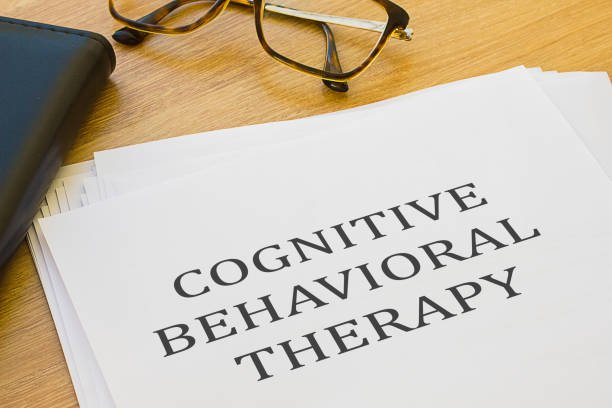
5 Essential Tips for Building a Stronger Mind Body Connection
The mind-body connection is a fascinating phenomenon that has been studied and pondered for centuries. From ancient philosophical teachings to modern scientific research, there’s a growing understanding of how closely intertwined our mental and physical states truly are.
In this blog post, we’ll delve into the intricacies of the mind-body connection, exploring its significance, effects on health, and practical ways to nurture this relationship for overall well-being through 5 essential tips for building a stronger mind body connection.
Mindfulness Practices:
Engaging in mindfulness practices such as meditation, yoga, or tai chi can profoundly benefit overall well-being by fostering awareness of the present moment. These practices allow individuals to immerse themselves fully in the now, letting go of past regrets and future worries.
Mindfulness offers a peaceful pause from the chaos of daily life, creating space to slow down, breathe deeply, and reconnect with the body. With regular practice, individuals develop heightened self-awareness, helping them understand their emotions, thoughts, and physical sensations on a deeper level.
A key benefit of mindfulness is stress reduction—it helps lower cortisol levels, leading to improved mental clarity and emotional balance. As one of the 5 essential tips for building a stronger mind body connection, mindfulness also encourages healthier habits like eating consciously, moving regularly, and prioritizing sleep. By embracing these practices, individuals can create harmony between mind and body, leading to greater peace, resilience, and long-term well-being.

Emotional Awareness:
5 Essential Tips for Building a Stronger Mind Body Connection begin with developing emotional awareness. This means recognizing your emotions without judgment and understanding how they influence your thoughts and actions. Tuning into your feelings helps you become more self-aware and intentional in your responses, rather than reacting on impulse.
Emotional awareness also strengthens communication, allowing you to express yourself clearly and connect better with others. When you manage emotions in a healthy way, you reduce stress, boost your mood, and build resilience. Suppressing emotions, on the other hand, can lead to anxiety and mental fatigue.
By practicing emotional awareness, you lay a powerful foundation for a stronger mind-body connection—helping you make wiser decisions, deepen relationships, and live more mindfully.

Healthy Lifestyle Choices:
5 Essential Tips for Building a Stronger Mind Body Connection start with developing emotional awareness. This involves tuning into your emotions, recognizing them without judgment, and understanding how they influence your thoughts, actions, and overall well-being. When you become emotionally aware, you gain deeper insight into your inner world, which helps you respond thoughtfully rather than reacting impulsively.
One of the 5 Essential Tips for Building a Stronger Mind Body Connection is learning how to manage emotions in a healthy way. Suppressing feelings can lead to stress, anxiety, and mental exhaustion, while healthy emotional expression boosts resilience and mood. Emotional awareness also improves communication, allowing you to express yourself clearly and connect more deeply with others.
By practicing emotional awareness daily, you strengthen the link between mind and body—enabling better decision-making, deeper relationships, and a more balanced, fulfilling life.
Stress Management Techniques:
5 Essential Tips for Building a Stronger Mind Body Connection include practicing effective stress management techniques that support both mental and physical well-being. Deep breathing exercises, for example, help calm the nervous system and reduce tension by encouraging slow, focused breaths. Progressive muscle relaxation, which involves tensing and releasing different muscle groups, allows individuals to release physical stress and become more in tune with their body.
Another powerful method is guided imagery—visualizing peaceful scenes or engaging in calming meditations helps shift attention away from stressors and promotes emotional balance. These practices not only reduce anxiety but also strengthen the connection between mind and body. By incorporating these techniques into daily routines, you can build resilience, manage stress more effectively, and embrace the 5 Essential Tips for Building a Stronger Mind Body Connection for a healthier, more balanced life.

Cognitive Behavioral Therapy (CBT):
Cognitive Behavioral Therapy, commonly referred to as CBT, is a therapeutic approach that aims to alleviate mental health issues by targeting and altering negative thought patterns and behaviors. This form of therapy recognizes the interconnectedness between thoughts, emotions, and behaviors, emphasizing that our thoughts influence our feelings and actions. As highlighted in the 5 Essential Tips for Building a Stronger Mind Body Connection, understanding and managing this mind-body relationship is key to personal growth and well-being.
By identifying and challenging irrational or harmful thoughts, individuals can learn to replace them with more realistic and constructive ones. Similarly, by modifying maladaptive behaviors—such as avoidance or rumination—CBT helps individuals develop healthier coping mechanisms and problem-solving skills. Ultimately, the goal of CBT is to empower individuals to manage their emotions effectively, improve their overall well-being, and foster long-lasting positive changes in their lives—making it a vital component of the 5 Essential Tips for Building a Stronger Mind Body Connection.

Conclusion
Strengthening the connection between the mind and body is not only possible—it’s essential for living a balanced, resilient, and fulfilling life. These 5 Essential Tips for Building a Stronger Mind Body Connection—from practicing mindfulness and developing emotional awareness to adopting healthy lifestyle choices, mastering stress management techniques, and exploring Cognitive Behavioral Therapy—offer practical and proven ways to nurture your overall well-being.
By incorporating even a few of these strategies into your daily routine, you can begin to experience greater mental clarity, emotional stability, and physical vitality. Remember, lasting change comes through small, consistent steps. Start today, and empower yourself to live in harmony—mind, body, and soul.
FAQs
If you have questions about our 5 Essential Tips for Building a Stronger Mind Body Connection feel free to ask!
